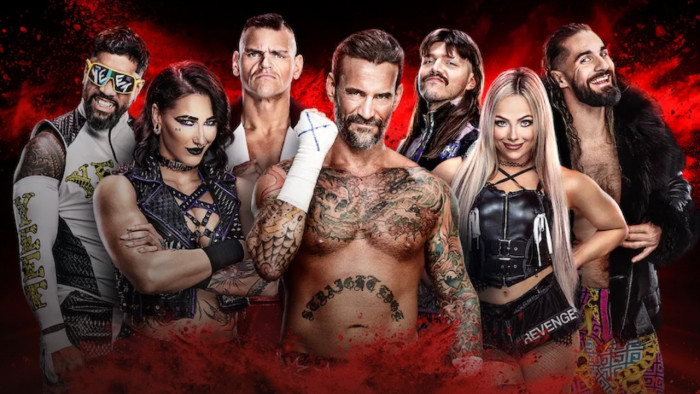This is why England should try to lose against Belgium on Thursday
There's nothing wrong with playing the system


After England’s magnificent 6-1 battering of Panama in their second match at the World Cup, thoughts immediately turned to the next game; one which many had thought would be a crucial and difficult battle for the Three Lions.
They face Belgium, the perennial dark horses for major football tournaments and a side packed with top players, on Thursday evening but, with the Belgians having also won their first two games, there is no pressure on either side to get a result in order to qualify for the second round.
With both teams already through to the next round the only thing at stake in the game is to decide the final group positions and, thus, who either side will play in the next round - and also, as the sequence of matches is preordained, who they stand to face in the ensuing rounds.
The match against Belgium is interesting, because, as the final group to be decided, both teams will know exactly who they stand to face in the second round, and also who they potentially stand to face in the latter rounds too - this is in contrast to competitions like the Champions League where, while group winners are seeded so that they play other group runners-up, it’s a relatively free draw to decide who plays who (aside from keeping teams from the same country and group apart in the second round).
With the tables poised as they are, there stands the intriguing possibility that one ‘side’ of the draw could be - on paper - massively easier than the other. After Germany’s shock exit on Wednesday afternoon, and with Brazil topping Group E, then by finishing second rather than top, England would face a quarter-final against Sweden or Switzerland instead of against Brazil or Mexico. And, in addition, their semi-final, should they win the group, would be against France, Uruguay, Portugal or Argentina - to a man all tricky games, whereas if they finish runners-up, they’d face off against Denmark, Croatia, Russia, or Spain - on paper, an easier proposition.
England last faced such a situation during Euro 2016, when an under-strength team picked by Roy Hodgson, under the guise of ‘resting’ players (in a tournament where you’d play a maximum of seven games) failed to beat Slovakia in their final group game. This meant that England only finished second in the group, behind Wales, placing them in the side of the draw featuring France, Italy, Spain and Germany. Four powerhouses of the game and multiple trophy winners that England could potentially face as the tournament progressed. Obviously, in reality it didn’t quite make it that far, owing to an ‘easy’ second round game against Iceland. We all know how that turned out, of course.
Meanwhile, the group winners, Wales, went into the other half of the draw with the only recognised big guns being Belgium and Portugal - neither of whom, at that stage, had ever won a major tournament. They duly progressed to the semi-finals and were only narrowly edged out by Portugal whilst two key players were missing.
Roy Hodgson attracted substantial criticism at the time for his Slovakia gamble not paying off: why didn’t he play a full-strength team to win the group, and thus ensure an easier passage in the remainder of the tournament?
Implicit in this criticism was the idea that playing weaker teams is advantageous. This is, surely, self-evident. Why would you want to play stronger teams unless you absolutely had to?
There is a saying that managers and commentators are fond of bringing out; essentially that ‘you’ve got to beat the best teams to win’ - therefore it doesn’t matter who you play, you’ve got to be the best team to win the tournament so it’s irrelevant if you play the best sides.
The problem is that this is total nonsense.
Two examples. Portugal reached the final of Euro 2016 by overcoming the relative minnows of Switzerland, Poland, Wales (not to mention only facing Hungary, Iceland and Austria in their group), while all the other big guns knocked themselves out around them. In fact, they only won one game in normal time in the entire tournament.

Portugal celebrate their unlikely triumph at Euro 2016
Meanwhile, the 2015/16 Champions League saw Real Madrid play Roma, Wolfsburg, Manchester City and Athletico Madrid - teams with a combined European Cup/Champions League haul of precisely zero - on the way to claiming the trophy, all while avoiding pre-tournament favourites Barcelona, Bayern Munich and Juventus as they knocked each other out.
So, an easier draw is surely better for your chances of success. And, nine times out of ten, this is achieved by trying to top your group, as Wales did in Euro 2016, and Real Madrid did in 2015.
Yet, as described earlier, there stands the chance, on this rare occasion, that the ‘easy’ side of the draw will come from finishing second in Group G, not first.
Portugal finished third in their group to ‘earn’ that trouble-free run to the final. Did it lessen their eventual triumph? Not at all.
So why wouldn’t England try and finish second in order to maximise their chances of World Cup glory?
Well, it seems that if they do, then the public won’t be behind them.
This intriguing poll, conducted by YouGov, asked the question: “If, during a sporting tournament, it might give your team a greater chance of progressing further if they lost an early game, do you think they should try to lose that game, or still try to win?”
You’d think, given what you see above, that it would at least be a close vote. Not so, with fully 66% of correspondents saying that the team should try and win, and a mere 7% saying that they should try to lose.
Read more: All you need to know: this is now England’s route to the World Cup final
It’s a fascinating result, and it would be equally fascinating if that question was asked in other countries. Is this a peculiarly English phenomenon? That the only ‘true’ victory is one achieved the hard way? By doing it ‘properly’?
But if that was the case, then surely our two semi-final runs - achieved by beating Belgium and Cameroon in 1990, and a then-weak Spain in 1996 - wouldn’t be celebrated like they are?
Perhaps you’d get a different result in Argentina, or Uruguay, where the concept of ‘doing whatever you need to do to win’ - viz-a-viz Diego Maradona’s 1986 handball and Luis Suarez’s goalline save in 2010 - is celebrated as part of the game. Both players are lauded as heroes for their actions in a way that seems unlikely if they had been English players.

Luis Suarez’s infamous handball on the line for Uruguay against Ghana in 2010. Ghana missed the resulting penalty before losing in a penalty shoot-out
Now, of course, there is another way of looking at the situation in terms of chances of tournament success; namely, that old chestnut: ‘momentum’.
If England were to beat Belgium in the final group, goes the thinking, then that would fill them with confidence, both as conquerors of a top-tier nation and as group winners, which would enable them to play better and thus be more likely to beat whoever stood in their way in the ensuing rounds, even if those subsequent games were harder.
This is an argument that definitely makes some sense. But wouldn’t you also gain an equivalent confidence by advancing further into the tournament - more achievable against poorer sides? And, after all, it doesn’t matter how you get there, if you make it to the final you only need a single stroke of genius, or a bit of luck to carry you through to the ultimate victory.
Now, if our opponents were an old adversary such as Germany, then perhaps national pride wouldn’t allow us to take our foot off the gas even for a single game. But, equally, what a devilish victory it would be to condemn them to a series of tough matches which would probably put them out.
No, this aversion to ‘playing the system’ smacks of a classic, puritannical English sense of ‘fair play’, in the same way that we failed to follow the rest of the world when it comes to diving and things like ‘drawing the foul’. It might not be ‘right’, but it is effective. It’s within the scope of the game and everyone else does it, so isn’t it time we stopped complaining and played for those extra percentages just like everyone else?
David Beckham famously caused uproar when he deliberately got a yellow card against Wales in 2004 in order to receive a one-game suspension for a game he would miss through injury anyway, with Sir Geoff Hurst even calling for him to lose the captaincy. But why? It was a smart and pragmatic move made with the team’s best interests in mind - his only error was in admitting to it. 14 years on, it’s hard to believe that anyone would now complain about this if it happened again.

If England were 1-0 up with a few minutes to play and held the ball in the corner while someone else collapsed with ‘cramp’ in order to get the trainer on, before using the last of our substitutions to waste those final few seconds, everyone would think that was smart play. If you went for an extra goal, people would think you were crazy, despite the fact that a 2-0 win would be ‘better’ than 1-0.
So why is trying to finish second instead of first so wrong?
How you achieve it is another matter - you certainly can’t be as blatant as the women’s doubles badminton players kicked out of the London 2012 Olympics for trying to throw matches for an easier draw - but there are plenty of ways to leave yourself more open to defeat than normal.
Of course, if rumours are true, then Roberto Martinez is currently weighing up his own team’s approach to the game, with various star players suddenly picking up injuries - but that just proves that the Belgians are already thinking pragmatically.
Do England want to do it ‘right’, or do they want to win? Surely, it’s time to stop playing nice and to start getting results.
(Images: Getty)
Latest
Related Reviews and Shortlists









